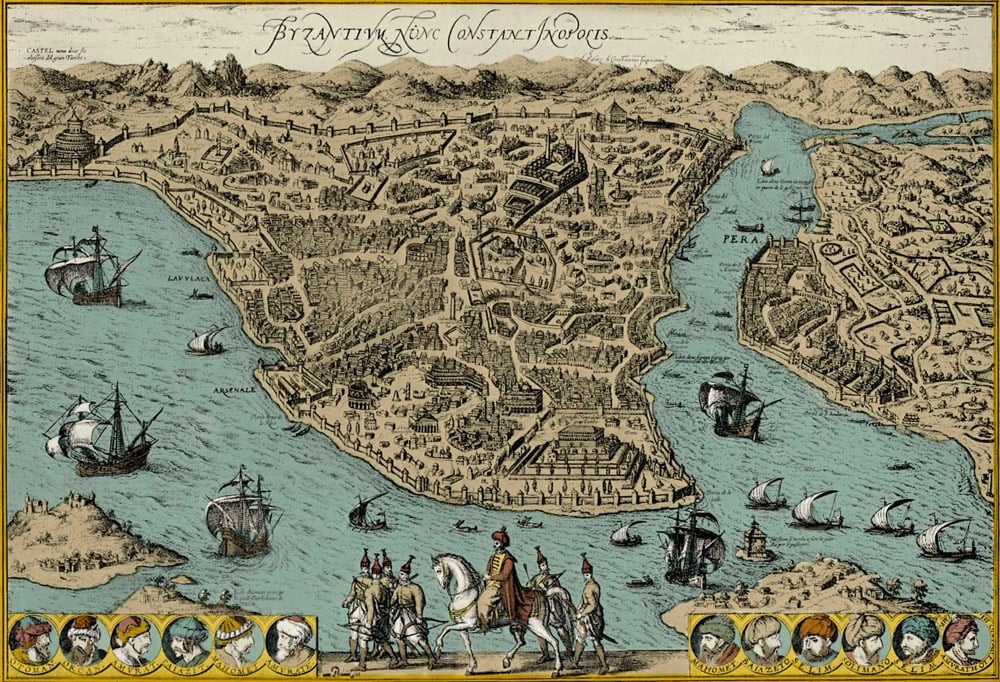The European Parenthesis

There’s an idea in media history and media theory called “The Gutenberg Parenthesis.” The basic idea of it is simple: the dominance of fixed, printed text is a historical blip in a broader history of much more mutable, orally-driven media forms. You find versions of this idea in Walter Ong and Marshall McLuhan, but it’s being re-thought for digital technology by folks like L.O. Sauerberg and Thomas Pettit. And one of the implications is that if you want to understand media today, you have to understand media before Gutenberg and print. The future is medieval, is one formulation of this.
A similar idea can be applied to world history, and it has been by J.C. Sharman in his book Empires of the Weak: The Real Story of European Expansion and the Creation of the New World Order. Here the focus isn’t print technology, which Europe borrowed and adapted from Asia 500 years ago, but European domination of the rest of the world, which, Sharman contends, really only got going a little more than 200 years ago and is questionable today.
This is from a review of Sharman’s book by Alan Mikhail, titled “When Asia Ruled the World”:
In Sharman’s account, the dominance of the West (note Europe’s easy baton-pass to the United States), roughly from the Enlightenment to World War II, represents a historical blip in the last millennium. And, perhaps more important, today we seem to be on the cusp of a return to a more regular state of affairs, where the large states of Asia will again be the globe’s hegemons.
To make this provocative argument, Sharman finds the early modern period, conventionally dated from 1500 to 1800, the most fruitful for thinking about where we are headed. In those centuries, the enormous empires of the East — the Qing, the Ottomans and the Mughals — were the most formidable states on earth. Territory equaled power, and those states held the most land…
Asia’s enormous land-based empires didn’t much care about their coastlines and tolerated — more than they succumbed to — the Europeans nibbling on their shores in what were desperate, highly risky and ultimately temporary ventures. Until approximately 1750, Europeans — even in Europe, thanks to the Ottomans — held no military advantage over other powers.
But how then to explain the undeniable fact that Europeans dominated the globe from the turn of the 19th century to World War I? Sharman reasons that it was a combination of internal fractures within the Qing and Ottoman Empires, as well as the inclination of Europeans to think that empire building was the route to national sovereignty: in other words, almost a kind of vanity project.
The future, contends Sharman, is medieval; one in which Asia dominates the planet, and Europe and the West are at the periphery of global power and influence. There’s a lot that’s going to change over the next century; global climate change is certainly going to shift the balance of power and the fight for survival worldwide. But the idea that we’re coming out of a historical aberration rather than a necessary outcome is well worth thinking about.





Stay Connected